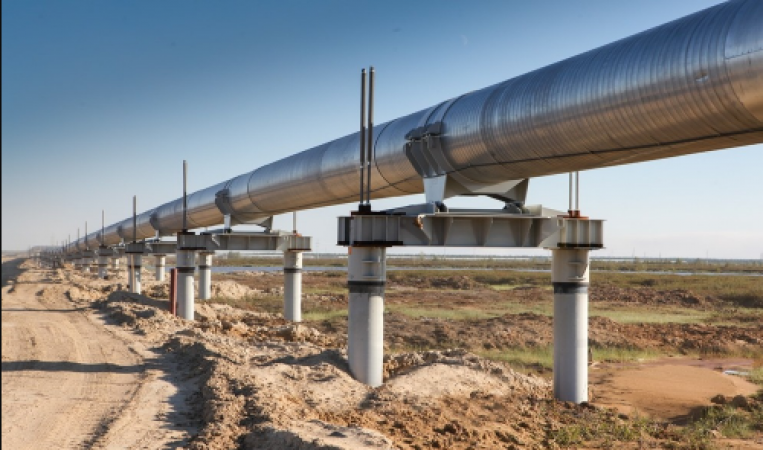
Astana: The state pipeline company of Kazakhstan, Kaztransoil, announced on Friday that it would increase the country's monthly oil export to Germany from the current 50,000 tonnes via Russia's Druzhba pipeline.
The company claims that two 20,000-ton shipments of oil via the pipeline have so far been successfully delivered to Adamowo-Zastawa in Poland. To Germany's PCK Refinery in Schwedt, it was then moved on from there.
On the other hand, the volume of supply is currently below expectations.
After Kaztransoil reached an agreement with Russian energy giant Transneft to use the Druzhba pipeline for transit, Moscow approved Kazakh oil exports to the EU in January.
A total of 1.2 million tonnes of pipeline capacity, including 300,000 tonnes in the first quarter, were set aside by Kazakhstan under the terms of the agreement for transit in 2023. Only 40,000 tonnes have been delivered thus far.
Bolat Akchulakov, the energy minister for Kazakhstan, stated last month that despite pipeline capacity being reserved for four times that amount, Astana's obligations to Germany for the entirety of 2023 only amount to 300,000 tonnes of oil. Analysts have questioned whether Kazakhstan can now keep its promises.
The nation produced 84.2 million tonnes of oil in 2022; this year, 90.5 million tonnes are anticipated. Oil exports are anticipated to total 71 million tonnes, but almost all of that volume is reportedly already under contract, making it unlikely that Kazakhstan will be able to reroute it without paying a penalty.
In order to deliver oil to Germany, Astana "does not have additional free volumes of oil," according to experts. Even if they do, the 1.2 million tonnes set aside for Kazakh transit only make up 10% of the 11 million tonnes of oil needed by the Schwedt refinery to maintain operations.
After the EU banned almost all imports of Russian crude oil in the beginning of December, Berlin turned to Astana as a replacement oil supplier. While Germany and Poland chose to reduce their imports of Russian crude in an effort to further lessen their dependence on Russian energy, Hungary, Slovakia, and the Czech Republic were still permitted to continue receiving supplies through the Druzhba pipeline.
Germany was drawn to Kazakh oil because it has a similar chemical make-up to the Urals grade of Russian oil on which it had previously depended.
Also Read: London is no longer undisputedly the top financial hub in the world
Additionally, it was thought that Berlin's existing Druzhba pipeline infrastructure would alleviate additional logistical problems. Analysts have cautioned that Kazakhstan may not be able to increase production enough to replace the shunned Russian supplies and that it is having difficulty meeting European demand for oil.